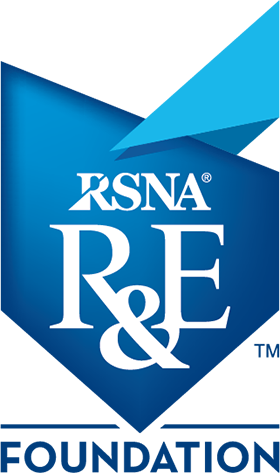Research Scholar Grant
The Research Scholar Grant supports junior faculty members who have completed resident and fellowship programs but haven’t been recognized as independent investigators. Our funding not only helps establish recipients as investigators but also supports them as they collect preliminary data that could lead to other funding in the future.
Application cycle closed
The 2026-27 application cycle for the Research Scholar Grant is closed. The next application cycle will open in October 2026.
Award amount
Grant recipients receive up to $100,000 a year for two years to be used as salary support and to cover research-related expenses.
Nature of projects and focus areas
Beginning with the 2026 grant cycle, the R&E Foundation is excited to introduce a new priority focus areas funding initiative, designed to support transformative research in cutting-edge, underfunded and high-impact disciplines as identified by the Board of Trustees. These areas represent opportunities for innovation and advancement in radiology and are a strategic focus for the Foundation moving forward.
2026 approved priority areas include:
- Precision medicine: Theranostics
- Imaging in vulnerable populations
- Efficiencies in radiology and opportunities for improvement
- Personalized care in pediatric imaging
- Cybersecurity in radiology departments
- Increasing access and efficiency: Doing more with less
While these priority areas are encouraged, the Foundation remains committed to supporting early-career radiologist and will continue to accept investigator-initiated proposals across the full spectrum of radiologic science. Projects that advance imaging science, develop or evaluate medical imaging technologies, or apply imaging in innovative ways to address important biological or clinical questions are always welcome.
Eligibility
Any junior radiology faculty member may apply for the Research Scholar Grant, as long as you are an RSNA member and meet the following criteria:
- You must hold a full-time faculty position in a department of radiology, radiation oncology or nuclear medicine within a North American educational institution.
- You must have been hired within the last 8 years with an academic rank of instructor, assistant professor or an equivalent title.
- You must have completed advanced training and be certified by either the American Board of Radiology (ABR), The Royal College of Physicians and Surgeons of Canada or are on track for certification.
- You cannot have been a principal investigator on a grant or contract totaling more than $60,000 in a single year. This includes single and combined grants and contracts from government, private and commercial sources.
- You and your principal investigators cannot be employed by any for-profit, commercial company in the radiologic sciences.
- You cannot submit more than one grant application to the RSNA R&E Foundation a year and cannot have a concurrent RSNA grant.
- Funding from other grant sources must be approved by Foundation staff if it wasn’t described in the original research plan.
- You cannot have previously accepted any of the following grants: ARRS Scholar Award, AUR GE-Radiology Research Academic Fellowship (GERRAF), RSNA Research Scholar Grant.
While applications are accepted from departments that currently host Research Scholar Grant recipients, only two new nominations may be submitted per department, per year.
Additional information and instructions
For more detailed information, including application instructions, please review this grant's policies and procedures (PDF).
Applicant resources
We’re here to help you succeed. Check out our grant writing workshops, research and development guides and application process FAQs
Current recipients
To view additional recipients from prior years, please use our online grant and award recipient search tool.About the R&E Foundation

Our Research & Education Foundation provides a critical source of support for investigators. Since the Foundation’s inception in 1984 we’ve awarded over 1,900+ grants. That’s $84 million in funding for radiology research and improving patient care.